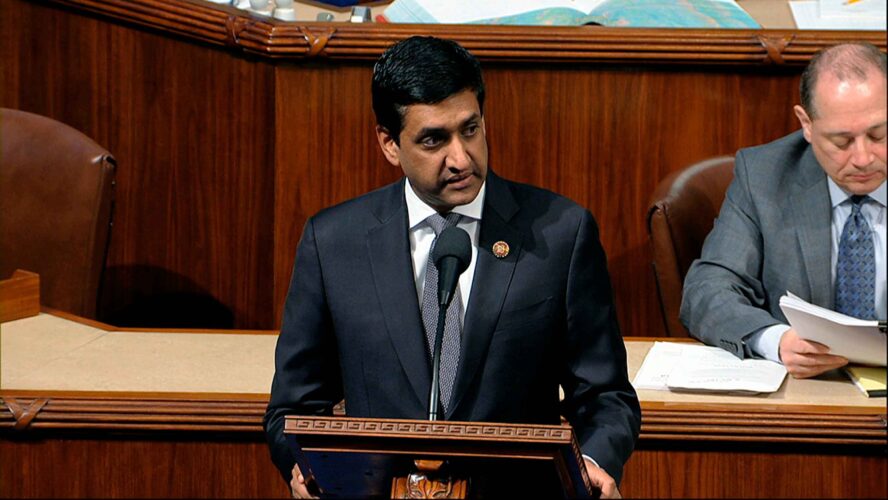Progressive Rep. Ro Khanna (D-CA) introduced a bill Thursday, called the “Political Reform Resolution,” that would ban stock trading for sitting members of Congress and implement a host of other “anti-corruption” measures.
The bill would also put 12-year term limits on congressmembers, 18-year term limits on Supreme Court Justices, a “binding code of ethics” for the Court, a ban on House and Senate members as well as candidates from accepting funds from political action committees (PACs) and lobbyists, and a lifetime ban on former members of Congress engaging in lobbying.
“All I want for Christmas is to clean up the corruption in Congress,” Khanna wrote on X.
Learn the benefits of becoming a Valuetainment Member and subscribe today!
All I want for Christmas is to clean up the corruption in Congress. Tomorrow, I will introduce a resolution to:
✅Ban stock trading for members of Congress
✅Ban lobbyist & PAC donations
✅Ban members from becoming lobbyists
✅Enact term limits for Congress & SCOTUS
✅Enforce a… pic.twitter.com/qB9bFG3Xvw— Rep. Ro Khanna (@RepRoKhanna) December 14, 2023
While the basics of his reform bill had been announced in September, it is now officially introduced into the House of Representatives.
The text of the press release argues that lenient campaign finance laws and rules regarding insider trading have caused an explosion in congressional corruption. “Wealthy donors, PACs, and personal gain” have been privileged over the interests of the representatives’ constituents, the text says. It also notes that insider dealing continues even after members of Congress step down, as they are often rewarded with lucrative jobs with lobbying firms — in industries like pharmaceuticals, defense, and big agriculture. In 2019, the release claims, over half of former lawmakers have engaged in the practice of using their political connections for monetary gain and influence.
“Our political system should not be for sale. Trust in the government has been declining for decades, and Congress must act with urgency to rebuild it. The Political Reform Resolution acknowledges that there are tangible legislative solutions for these problems, and that we must pursue them as a comprehensive reform plan to rein in corruption,” Ro Khanna said in an official statement.
Khanna contends that the Supreme Court is also in need of a reform, citing recent investigations have allegedly uncovered many instances of ethics violations, like “deficient financial disclosures,” “receiving extravagant gifts,” and “misusing staff.” He argues that removing lifetime tenures will undo the intense partisan polarization and add a degree of accountability. Another proposed requirement in his resolution would see a new Justice added and another step down every two years. As the Court has nine Justices, that would mean each hitting the new 18-year term limit before getting replaced with a fresh Justice.


















Add comment